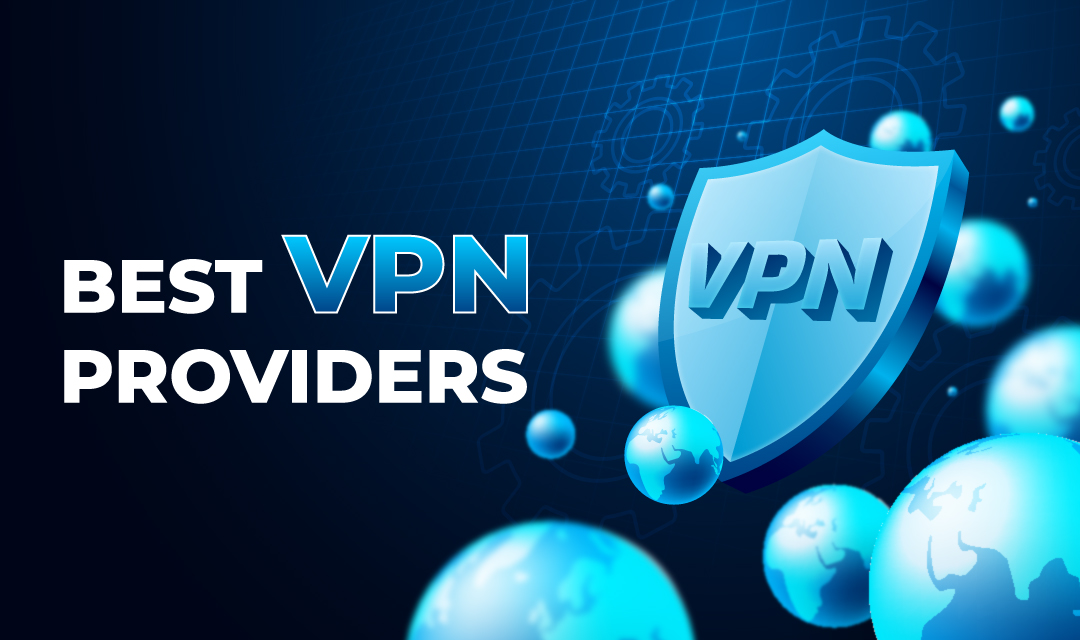The web has become central to the manner in which we work, socialise, and entertain ourselves. It has introduced new problems, too: data breaches, geo-blocking, and increased monitoring.
Under such circumstances, a Virtual Private Network (VPN) is no longer a gadget nicety for geeks — it is a necessity for anyone who values confidentiality and unimpeded access.
This top vpn providers lumolog review is about the top VPN providers of 2025. It will discover not just who best markets themselves, but who actually delivers value on real criteria: speed, security, transparency, and ease of use.
How VPN Providers Are Ranked
Before examining the rankings, defining the evaluation lens is essential. A good VPN should accomplish more than conceal your IP address. The following categories are employed:
Security and Encryption – Does the service employ solid encryption such as AES-256? Is there support for advanced protocols such as WireGuard or OpenVPN?
Privacy Commitment – Is there a no-logs policy, preferably backed by independent audits? What jurisdiction binds the provider?
Speed and Reliability – Does the performance hold up to streaming, gaming, or big downloads?
Server Network – How many countries are covered, and does the vendor have specialist servers (e.g., P2P, obfuscation)?
Ease of Use – Are apps stable, easy to use, and accessible across devices?
Streaming and Geo-Unblocking – Can the VPN bypass blocks on services like Netflix, BBC iPlayer, or Disney+?
Customer Support – Is help readily and efficiently available when things go wrong?
Pricing and Value – Do tiered subscriptions balance cost vs. features?
Best VPN Services Assessed
NordVPN
NordVPN has built a reputation on providing a balanced solution. Its adoption of RAM-only servers, along with its in-house developed NordLynx protocol, ensures both speed and anonymity. Third-party audits have certified its no-logs policy, so it is an easy choice to trust.
Pros: Excellent speeds, reliable streaming access, effective privacy.
Cons: Higher-priced top tier; higher-end tools intimidate newcomers.
Best Fit: Consumers seeking an overall VPN with equal speed and security.
ExpressVPN
ExpressVPN is widely praised for its sophisticated apps and global infrastructure. Its “TrustedServer” technology runs exclusively on RAM, and no data ever gets stored. Quality is consistently high, especially for streaming.
Highlights: Effective geo-unblocking, rapid connections, user-friendly apps.
Drawbacks: More expensive than most rivals; less advanced tweaks.
Best Fit: Streamers and tourists who want a trouble-free experience.
Surfshark
Surfshark combines low price with unlimited devices, something which sets it apart. While cheap, it includes obfuscation, ad blocking, and great speed.
Strengths: Great value, unlimited devices, great resistance to censorship.
Weaknesses: Speed drops on distant servers; support less polished.
Best For: Families and multi-device households.
ProtonVPN
Switzerland-located ProtonVPN has robust privacy law. It contains a rare free plan that is not advertized, and the paid subscription enhances multi-hop connections and Tor functionality.
Features: Privacy-oriented construction, free plan, no-logs policy audited.
Downsides: Paid options are costly; streaming functionality is unstable.
Best For: Clients who appreciate legal safeguards and transparency.
Private Internet Access (PIA)
PIA is a favorite of power users because it is highly configurable and has open-source clients. It supports good torrents and is competitively priced.
Pros: Highly configurable, cheap long-term plans, open-source apps.
Cons: Jurisdiction in U.S. and privacy issues; streaming reliability is hit-or-miss.
Best Fit: Advanced users who require control.
CyberGhost
CyberGhost is designed for beginners with simple apps and one-click profiles. It also has streaming-optimized servers by platform.
Pros: Simple to use, inexpensive long-term plans, streaming servers.
Drawbacks: Variable speeds; some critics dispute ownership history.
Best Fit: New VPN users seeking simplicity.
IPVanish
IPVanish has its own infrastructure, a rarity among VPNs. It provides greater control over speed and quality of servers. It also supports unlimited devices.
Highlights: Ownership of infrastructure, reasonable speeds, very wide platform support.
Drawbacks: Based in the U.S.; fewer advanced features.
Best Fit: Large families with many devices and users needing consistent performance.
Other Noteworthy Mentions
Windscribe – A free and good-sized plan with generous security tools.
Mullvad – Renowned for anonymous sign-up and payment with cash or cryptocurrency.
Atlas VPN – Low prices with unlimited device connections.
Combining VPNs with Real-World Requirements
For Streaming: ExpressVPN, NordVPN, Surfshark.
For Privacy: ProtonVPN, Mullvad, NordVPN.
For Budget Users: Surfshark, CyberGhost, Atlas VPN.
For Censorship Resistance: NordVPN, ProtonVPN, Surfshark.
For Torrenting: PIA, NordVPN, IPVanish.
Errors to Avoid When Choosing a VPN
Choosing Based on Ads Alone – Advertising is not necessarily a measure of real performance.
Ignoring Jurisdiction – Local laws can undermine privacy complaints.
Relying on Free VPNs – Free accounts compromise speed and/or privacy.
Looking at Price Alone – Cheap services usually cut back on important features.
Looking into the Future: The Future of VPNs
The VPN landscape is evolving rapidly. Some of the main trends are:
Increased use of WireGuard for better performance.
Deployment of diskless servers to reduce risks of data compromise.
Improved stealth technology for users in censored regions.
Greater integration with security software like malware blocking.
Diversification with open-source initiatives to improve user trust.
Conclusion
A Best VPN is now a fundamental part of internet life, protecting privacy, enabling global content watching, and offering an added layer to everyday browsing.
Measured by a Lumolog-type analytical matrix, three providers stand as reliable leaders:
NordVPN for overall balance of security and speed.
ExpressVPN for unmatchable streaming performance.
Surfshark for value and unlimited device allowance.
All that considered, alternatives such as ProtonVPN, PIA, CyberGhost, and IPVanish are still excellent choices for more specific users. The secret is in pairing the provider’s strengths with your own requirements — privacy, streaming, or budget, for instance.
